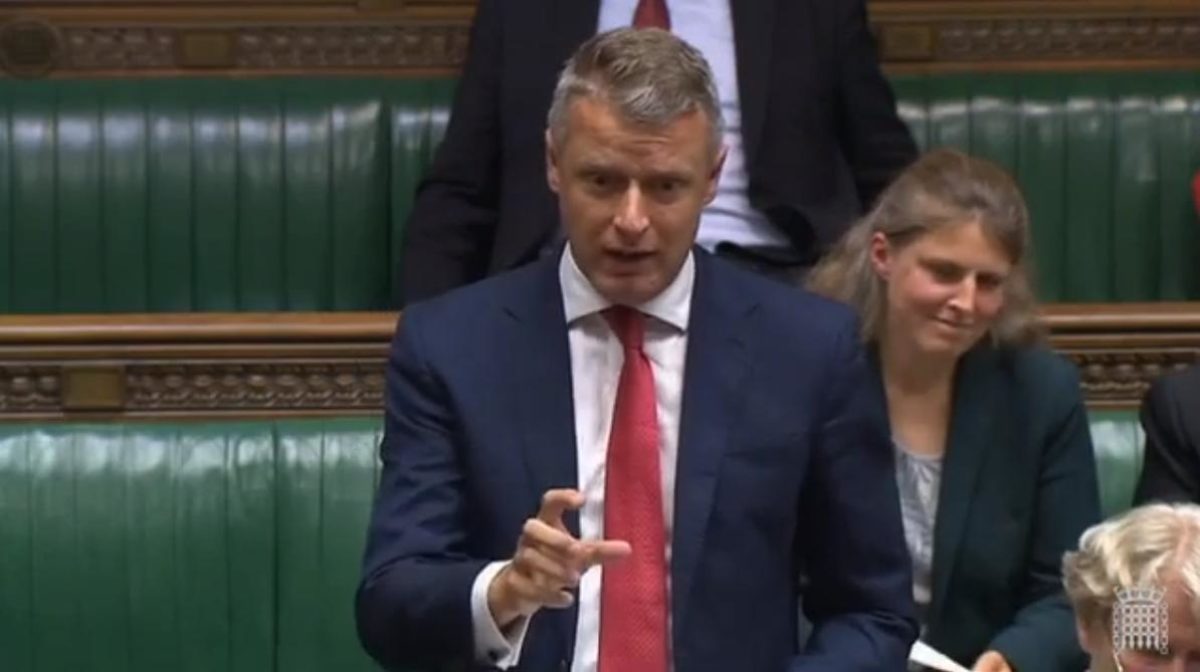Luke Pollard MP Member of Parliament for Plymouth Sutton and Devonport

Monday evening sees the return of the Government’s post-Brexit Trade Bill for its final stages in the House of Commons. The legislation represents the first opportunity for any UK Government in over forty years to manage the country’s trade policy and ratify independent trade agreements.
The Bill has come under criticism from a contingent of cross-party MPs. In its current form, the legislation would allow trade deals to be negotiated, agreed and ratified without a single House of Commons debate. This fails to live up to the pre-election rhetoric of the Conservatives, that leaving the European Union would usher in a new era of parliamentary sovereignty.
Amendments have been tabled, and on Monday MPs will be voting on whether the House will be allowed a say on our future trading relationships.
Luke Pollard MP for Plymouth Sutton and Devonport said:
“Those advocating for Britain’s exit from the European Union made the case that by leaving the EU we would be “taking back control” – whatever that may mean. But it is clear that the Trade Bill seeks to concentrate powers to make trade deals in Ministers without Parliament having a proper role. We have now left the EU but as full members democratically elected Members of the European Parliament, as well as Ministers sitting on the Council of Ministers, would scrutinise and approve trade deals. Now we are outside the EU, Britain should be developing a new system where we take the best practice from around the world and use it here. Only dictators concentrate powers to make trade deals and hide them from their national parliaments.
I will, therefore, support the amendment proposed to the Trade Bill to allow Parliament a role in scrutinising and approving trade deals. This matters as the detail of trade bills matter. They have the power to override national laws and without proper oversight could embed uncompetitive and destructive practices in our economy.
I have been making the case that our British farmers must not be undercut in future trade deals that would allow food produced to lower environmental and animal welfare standards abroad to be sold in the UK. Whether the food is grown here or imported, it should meet our high current standards.
Chlorinated chicken and hormone-treated beef may have taken the lion’s share of public focus on this matter. Still, these are not the only foods that could be produced cheaper abroad because of lower standards, let alone poorer working practices, pay and conditions. I have listened carefully to British farmers in the south-west and, via the National Farmers Union, nationally, and they all share my concern.
I have tabled amendments to the Agriculture Bill to protect our high standards, as have some Tory MPs. Sadly, Ministers used their large majority to defeat these efforts giving the green light for a US trade deal that would undercut our British farmers pushing many out of business I fear. If Parliament does not have the ability to vote down a poor trade deal, then we risk being at the whim of the ideological machinations of whoever is in power at the time. This is an affront to our democracy and flies in the face of the promises made to the British people in the EU referendum.
I am genuinely worried about our food and farming standards being undercut in trade deals not just with the USA but with Australia and other countries too. I will continue to make a case for improved food standards and for decent Parliamentary oversight of trade deals. Scrutiny makes for better policy, and better policy helps more people. The Government should not be afraid of scrutiny and accountability.”
